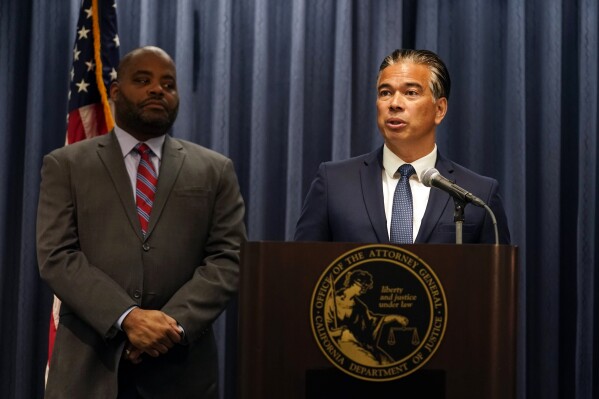Judge dismisses lawsuit by sorority sisters who sought to block a transgender woman from joining
CHEYENNE, Wyo. (AP) — A judge has dismissed a lawsuit contesting a transgender woman’s admission into a sorority at the University of Wyoming, ruling that he could not override how the private, voluntary organization defined a woman and order that she not belong.
In the lawsuit, six members of the Kappa Kappa Gamma sorority chapter challenged Artemis Langford’s admission by casting doubt on whether sorority rules allowed a transgender woman. Wyoming U.S. District Court Judge Alan Johnson, in his ruling, found that sorority bylaws don’t define who’s a woman.
The case at Wyoming’s only four-year public university drew widespread attention as transgender people fight for more acceptance in schools, athletics, workplaces and elsewhere, while others push back.
A federal court cannot interfere with the sorority chapter’s freedom of association by ruling against its vote to induct the transgender woman last year, Johnson ruled Friday.
 California sues district that requires parents be notified if their kids change pronouns
California sues district that requires parents be notified if their kids change pronouns
 Grassland birds decline, deadly Michigan tornado, Maui lawsuit: What to know in extreme weather now
Grassland birds decline, deadly Michigan tornado, Maui lawsuit: What to know in extreme weather now
 Hawaiian Electric shares plunge after utility is sued over devastating Maui fires
Hawaiian Electric shares plunge after utility is sued over devastating Maui fires
With no definition of a woman in sorority bylaws, Johnson ruled that he could not impose the six sisters’ definition of a woman in place of the sorority’s more expansive definition provided in court.
“With its inquiry beginning and ending there, the court will not define a ‘woman’ today,” Johnson wrote.
Langford’s attorney, Rachel Berkness, welcomed the ruling.
“The allegations against Ms. Langford should never have made it into a legal filing. They are nothing more than cruel rumors that mirror exactly the type of rumors used to vilify and dehumanize members of the LGBTQIA+ community for generations. And they are baseless,” Berkness said in an email.
The sorority sisters who sued said Langford’s presence in their sorority house made them uncomfortable. But while the lawsuit portrayed Langford as a “sexual predator,” claims about her behavior turned out to be a “nothing more than a drunken rumor,” Berkness said.
An attorney for the sorority sisters, Cassie Craven, said by email they disagreed with the ruling and the fundamental issue — the definition of a woman — remains undecided.
“Women have a biological reality that deserves to be protected and recognized and we will continue to fight for that right just as women suffragists for decades have been told that their bodies, opinions, and safety doesn’t matter,” Craven wrote.
Disclaimer: The copyright of this article belongs to the original author. Reposting this article is solely for the purpose of information dissemination and does not constitute any investment advice. If there is any infringement, please contact us immediately. We will make corrections or deletions as necessary. Thank you.



